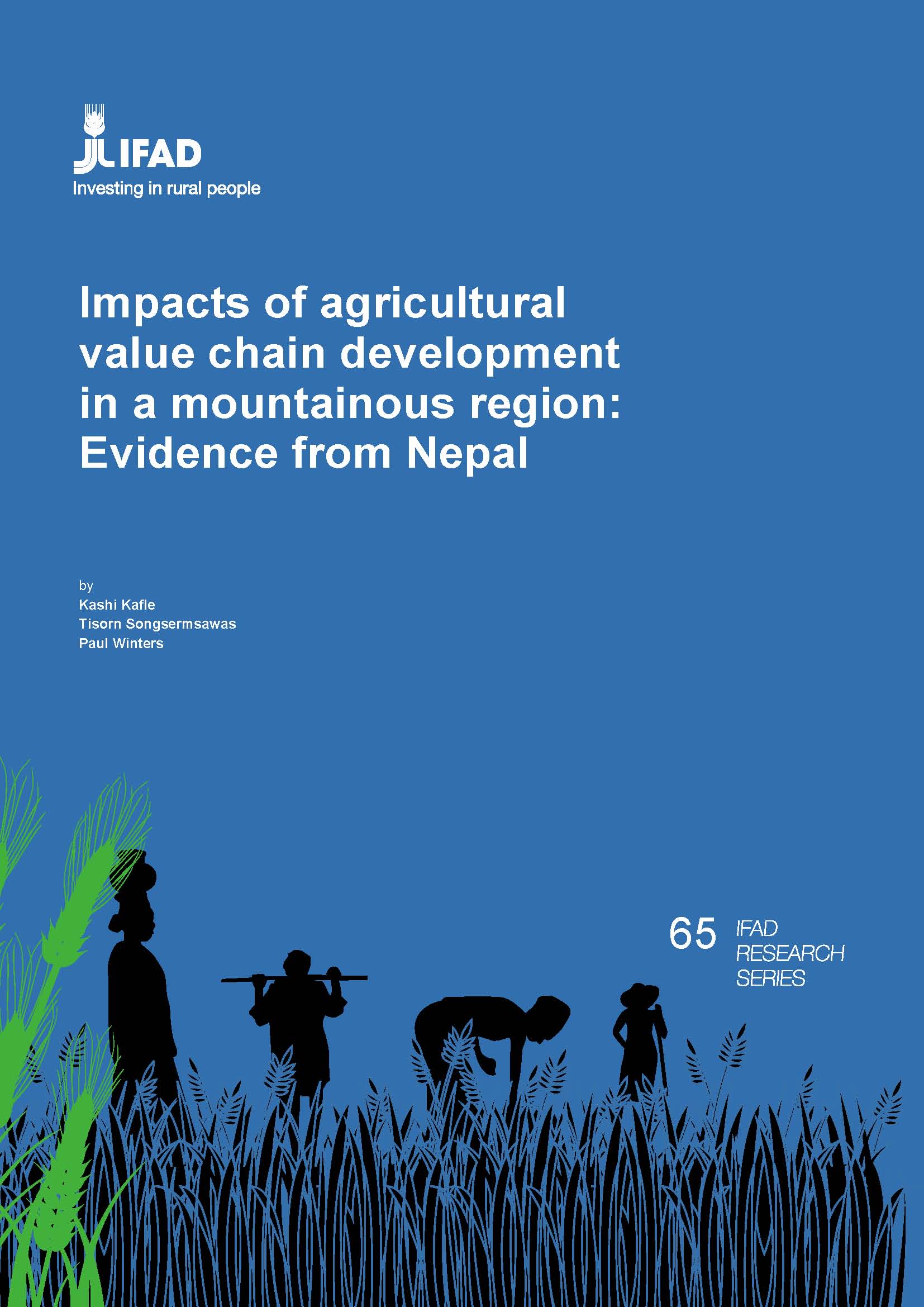Impacts of agricultural value chain development in a mountainous region: evidence from Nepal
Abstract
This analysis investigates the potential mechanism and the practical significance of the impacts of agricultural value chain development in a geographically challenging rural area of a developing country. We use data from a carefully designed primary survey administered in the hill and mountainous region in Western Nepal. Using the inverse probability weighted regression adjustment method, we show that linking small-scale producers with regional and local traders can help increase agricultural income. We unpack the potential mechanism of the impact pathway and show that the increase in agricultural income is a consequence of higher agricultural revenues, owing to a higher volume of sales at lower prices. We argue that value chain intervention in rural areas, where land is not fully exploited, can lead to acreage expansion or crop switching, which eventually results in higher supply at lower output prices. The positive impact on household income is practically significant in that it translated into improved food security, dietary diversity and household resilience. These findings are robust to various specifications. Targeted value chain interventions that strengthen and stabilize small-scale producers’ access to markets can contribute to rural poverty reduction via an increase in agricultural income.

